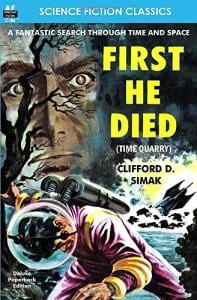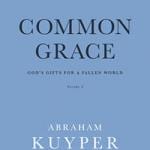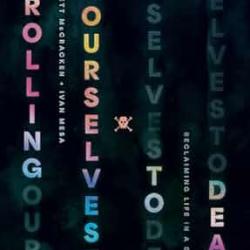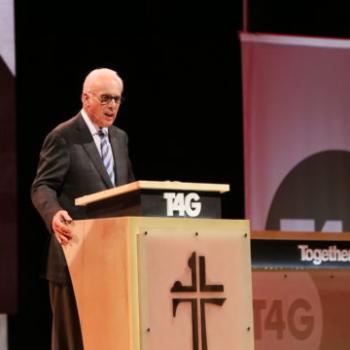
20th century science fiction has an interesting relationship with religion. On the one hand, clearly the vast majority of the great sci-fi writers believe that science has displaced religion and that anyway ‘religion’ is that superstitious stuff they believed in the Dark Ages. We don’t need gods to explain the stars and weather, science will do that for us. We may not even need God for eternal life if we just get the right combination of drugs into the right sized pill…
And yet, at the same time these older writers realize that religion both grapples with problems that science can’t and in a way that the scientific method doesn’t allow (for better or worse), and has its own merits in terms of answering big-picture questions. Science can tell us a lot about how the universe works, but questions like why must remain unanswered by the sciences (at least, by the honest practitioners of the disciplines). Which means when the best science writers are grappling with these difficult questions it’s worth our taking note. Clifford Simak’s First He Died is such a grappling and is absolutely worth your time.
Now a disclaimer: this isn’t Simak’s best work. That’s undoubtedly City. But it’s still a good, solid work with a thoughtful plot that engages important issues. Namely, the issue of Destiny.
We tend to think of “destiny” as the inevitable end towards which everything flows and which is already determined. Or we think of it as made up superstition. But what if everyone has it wrong? What if ‘destiny’ is actually a critter? Or, more accurately, a multitude of sentient beings attached to all other living things nudging them in the right direction. We, the nudged, can accept our destiny or not. This is what Asher Sutton will write in his book, based on his trip to the inaccessible planet where he met and bonded with his own destiny “Johnny.” But there are powerful forces from the future determined to either stop Sutton outright, or tastefully ‘edit’ his book to keep it from giving the androids ideas above their station in life.
Clearly this is a complicated little book, dealing with everything from time travel to artificial intelligence to, well, the nature of destiny–despite weighing in at only 220 or so pages. As such it’s one that merits a close reading and careful attention. The fact that Simak is an excellent writer and even his weaker stories are worthwhile just makes First He Died that much better.
Dr. Coyle Neal is host of the City of Man Podcast and an Associate Professor of Political Science at Southwest Baptist University in Bolivar, MO












